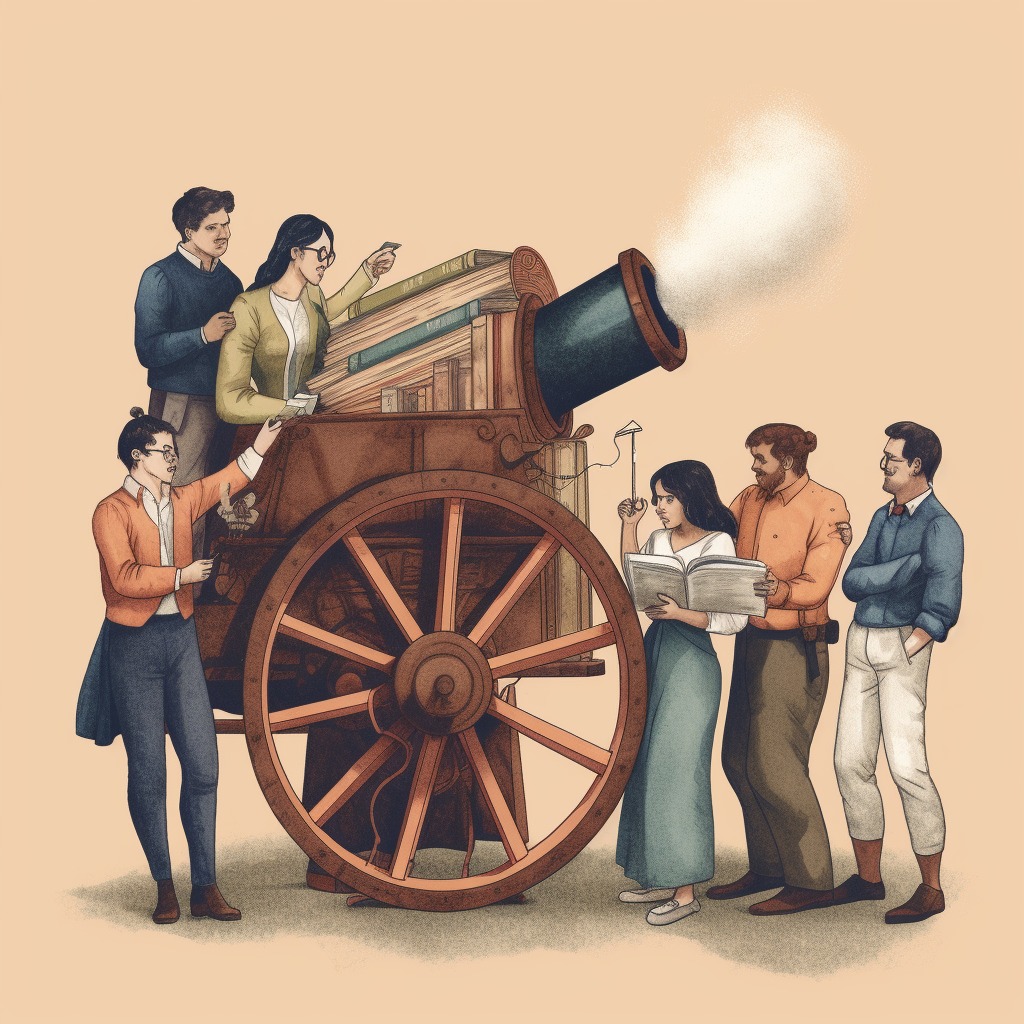The Future Isn't 1000 True Fans. It's 100 True Friends

I've been thinking a lot about the future lately (I know that's a shock on a blog that literally has "future" in the name).
Specifically, I'm exploring the Creator Economy, because I see so much potential there, but I think a lot of people are treating it the wrong way. And then I read a blog from my friend (ok, he's a friend in my head at least. I've talked to him a couple of times and I'm a little obsessed with his content and way of viewing the world).
That paragraph illustrates a really weird way the internet distorts our reality doesn't it?
But it's perfect to describe the point I want to illustrate here.
By the way, I'll go ahead and close this loop for you. The blog post is "The Perils of Niching Down", by Rob Hardy.
The Distortion Of The 1000 True Fans Model
In it, he talks about the way we've distorted the original idea of the 1000 true fans model. I actually like the model in theory, but in practice, I think there's a problem with the way the majority of people interpret the word "fan" and not understanding how powerful the word "true" is in that model.
That led to a bunch of people taking that idea and figuring out ways to efficiently build an audience of 1000 people. Then they tended to scale that out. And they did that via the "niche".
You find a specific type of people, create content for that type of person, and focus focus focus on that.
And that kills your soul as a creator. It focuses on what you're creating. You try to create content in a measurable, repeatable way. You try to optimize your content for distribution, because the algorithms are your overlords.
"Please, all-powerful algorithm, push me to the people who need to see me."
How can we make that happen?
Ok, let's start by understanding that platforms try to categorize people based on measurable traits. So if they like a specific topic, we can add that topic to their name. Or if we see that they read 5 blogs on AI, they must like AI, and we can categorize them as interested in AI, and then a creator who wants to reach them needs to create content that we can tag with AI. And then we can make that connection.
That's the easy part.
But It's A Game
Now let's layer on some game theory.
When there are 1000s, 10000s, or 100000s of other people on the site, all looking to target different types of people, with a measurable payout (whether it be monetary, attention, or whatever. Gotta chase those metrics), people will optimize their gameplay based on what they can see. This means that people can change their play to suit the algorithm, and then they can win the game against those who focus on the content itself.
Now, platforms try to deliver the best possible results. That's their goal because it's how they can get the best possible outcomes for their companies. So they are constantly tweaking their distribution algorithms to be smarter about picking out the "best" content.
And then they get yelled at by people who have built models around that content distribution channel, because all of a sudden, there was a change, and their optimized content that was the backbone of their business is no longer optimized. Suddenly, their measurable results don't measure up.
It's a tough game to play, but that's the algorithm-based distribution game.
It's a zero-sum game for attention. Attention is limited, it's valuable, and people are chasing it.
Wait A Minute Though
"But Leo, isn't the creator economy focused on positive sum games?"
That's a great question, reader! I'm glad you brought that up. It definitely is typically advertised as being that way, and yet our distribution systems aren't designed that way. Here's why:
It's really hard to predict the future. So if you're looking at numbers and trying to figure out what is going to happen, it's hard to know who to bet on. Look at investors: they throw out the number of 90% of companies failing.
They like to claim that it's because it's really tough to achieve those levels of success. And it is, kinda. But it's way harder due to how the game is designed. It's designed to be zero-sum. There's a finite amount of capital available for each investor to deploy and companies have to compete for it. Again, this selects for companies that optimize on raising money, not companies that optimize on running a profitable, scaleable business.
Hmm, so the models that fund the platforms that distribute content are reflected in the way the platforms surface content?
Isn't that funny?
But what if we stopped worrying so much about measuring things?
One of the biggest issues with measuring things is that we focus a lot on the biggest numbers. Again, if your goal is to impress potential investors, you need to tell a compelling story: "why is this company going to be the moonshot that makes my fund pay out?"
Think about that for a minute. In order to convince an investor to invest in your company, you need to convince them that you will be the one right decision they make for that fund. The model usually requires a small handful of companies to make up for the rest of their investments that didn't fall short.
Your content is the same way. You'll probably have one piece that gets way more attention than the rest. And if you're lucky, you'll be able to capture enough of that attention in ways that can be valuable to you.
Ok, that's enough about what currently is. Let's move on to what could be.
The 100 True Friends Model
Here's the one thing I've seen work over and over: your friends will want to support you in what you do. They are cheering for you to succeed. Let them know what you need, and they'll do whatever they can to make that happen.
Does that make them your biggest client?
Nope.
Do they pay you at all?
Probably not, although they might.
But they trust you. And they will share that trust with anyone who asks. You're their friend and they want to help you out.
The idea of social proof? That's wrapped up here, but in a slightly different way.
It's not direct. It's not a testimonial for your product. It's not a blurb on your website.
It's built over months and years, not minutes and hours.
It's built over drinks by the pool, tears shared over heartbreak, lives lived together.
It's built by caring about the actual people, not just the numbers.
That's a lesson I had to learn the hard way. I started by focusing on the numbers and trying to make them go up.
Because that's the game we are shown.
But what if we ignored the game we see and started playing the game we felt?
I'm in the process of exploring ways we can do so by providing tools on small scales. To people, not companies. Giving them the tools that Google, Twitter, etc have.
And seeing what they can do.
100 true friends provided with a toolkit full of things that can help everyone succeed? Now that sounds like a positive-sum game!
That's the idea behind Choose Your Algorithm.
There are a number of ways to build an algorithm. I'm connecting my friends and turning them into an effective distribution network. It's not a distribution network that anyone can join. It's not one that can just be spammed by people. It's more of a gated community that acts as the core of the network.
It allows friends to collaborate, work together, and build a positive-sum distribution network if they want.
I'm in the process of getting the Spark Podcast Network set up on that basis. It behaves somewhat like a typical podcast network, but it's a group of friends who create content on all sorts of different topics.
And it's not all podcasts. There will be a number of other forms of content represented.
And together, we can work together toward positive-sum outcomes.
Because after all, isn't that what the Creator Economy is all about?


Member discussion